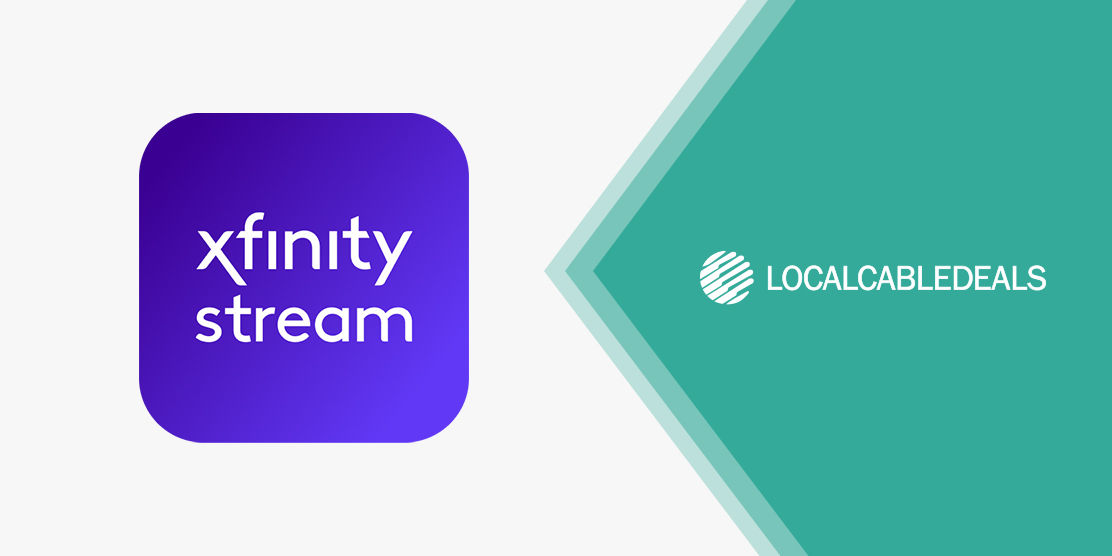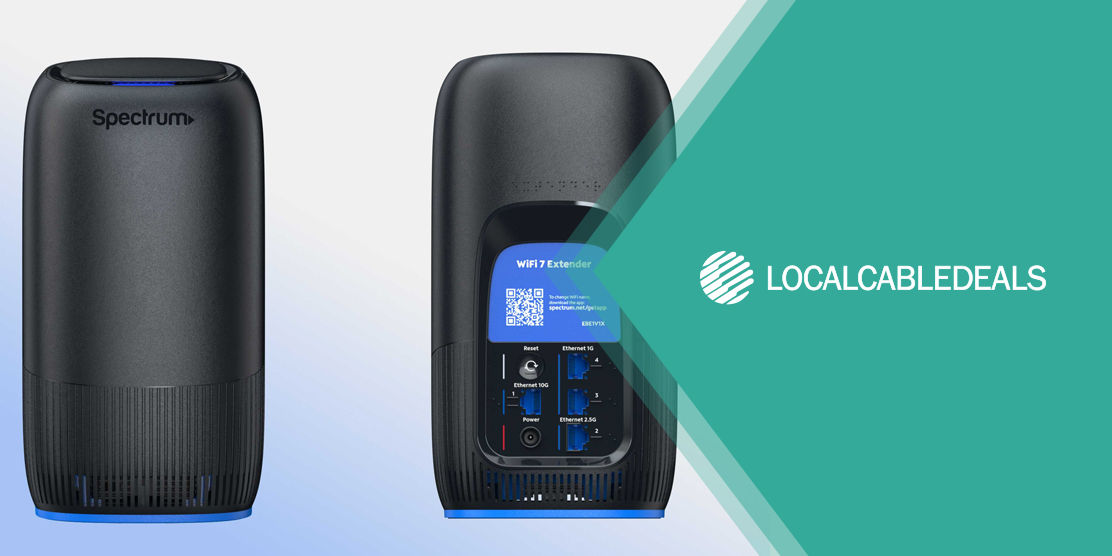Unbeatable price, lightning-fast speed, full home Wi-Fi coverage, no data cap, no contract, full parental control – internet brands claim all kinds of things. For a beginner, shopping for the right internet type is like navigating through a maze, trying to avoid pitfalls.
If you're new to this and trying to figure out how an internet connection type differs from an internet package, why it's important, and which one will suit your needs, you're in the right place. This blog will help you answer all these questions and pick the right internet connection for your needs.
Types of Internet Connections and Their Working
Within the world of internet connections, fiber and cable are two of the most talked-about options. One is widely available while the other is advanced. However, depending on the location, budget, requirements, and availability, the ideal internet connection type might vary.
If you are confused, here are some common internet connection types along with their benefits and some of the best brands to consider.
Fiber Internet
Starting with the latest and most advanced technology, fiber internet is currently the best option. This technology utilizes fiber optic cable for transmitting data packets via light through thin glass or plastic strands. The speed of this data is ultra-fast (nearly 70% of the speed of light).
Consequently, the speed of fiber internet is much higher and symmetrical. This means if you use a fiber internet connection, your upload and download speeds will be the same. Due to its symmetrical speed, fiber is a perfect choice for content creators, YouTubers, and remote workers with tech-savvy jobs.
Apart from this, fiber optic cable is less likely to be affected by weather conditions, natural disasters, or external damage. The only downside is that fiber optic is not widely available yet, so it is slightly more expensive than other available options.
Pros
- High speed
- Reliable connectivity
- Symmetrical speeds
Cons
- Limited availability
- Expensive
Now that you have weighed the pros and cons, here are some of the best fiber internet providers you can explore:
| ISP | Recommended for | Speeds Up to |
|---|---|---|
| AT&T | Multiple connected devices | Up to 300 Mbps - Up to 5-Gig^ |
^Speeds based on wired connection. Actual speeds may vary. For 5GIG, single device wired speed maximum 4.7Gbps. For more info, go to www.att.com/speed101.
Cable Internet
Cable internet is so far the most widely used internet connection type in the USA. This connection type relies on the existing cable TV infrastructure, which is the reason it is commonly available and quite affordable as well.
For residential users, cable internet is the best pick because of its high speed (up to 1 Gbps), wide availability, extensive range of plans, and affordability.
While cable internet is generally recommended for everyone, there are a few drawbacks to consider as well. For instance, cable wires are both underground and over ground, which makes them susceptible to natural disasters as well as weather changes.
Pros
- Wide availability
- Affordable
- Fast speed
Cons
- Might have a data cap
- Might have contract requirements
For cable internet, here are some of the best options to consider:
| ISP | Recommended for | Speeds Up to |
|---|---|---|
| Cox | Nation-wide hotspot | Cox: 300 Mbps - 2 Gbps |
| Spectrum | Wide availability | Spectrum: 100 Mbps - 2000 Mbps* *(Speeds up to 2 Gig available in select markets) |
*Price for Gig speed additional. Gig capable modem required for Gig speed. For a list of Gig capable modems, visit spectrum.net/modem. ©2024 Charter Communications, all rights reserved.
Satellite Internet
When no other internet connection is available, you can bet satellite internet will be there by your side. Known for its accessibility, this internet connection does not rely on any wires. Instead, every user needs to have their own dish mounted on the roof. This dish will connect directly to the satellite that is orbiting the Earth.
Eventually, the data gets to travel from the dish all the way to the satellite and then back to the dish. Since the route of data traveling is long, the speed of comparatively slow as well. Moreover, when the weather considerations are not favorable, you might also experience distortion or lag. Overall, for online games, streaming, and other tech-savvy tasks, you cannot rely on satellite internet.
Apart from speed, another drawback is the price. Satellite internet generally comes with a higher price tag, and some even come with a data cap. Even with all these disadvantages in mind, rural and suburban area residents are bound to rely on this internet type.
Pros
- Available everywhere
- Hassle-free setup
- Quicker recovery after an outage
Cons
- Easily affected by weather conditions
- Not ideal for streaming and online gaming
Here are our top picks for satellite internet providers in the US:
| ISP | Recommended for | Speeds Up to |
|---|---|---|
| Hughesnet | Rural Availability | Up to 100 Mbps* |
| Viasat | Realiability | Up to 25 Mbps - 150 Mbps** |
*Stated speeds are not guaranteed.
**Speeds are "up to," are not guaranteed and will vary.
DSL Internet
DSL is so far the oldest and still most known internet connection type. Similar to cable internet, the Digital Subscriber Line (DSL) also relies on wires; however, it relies on copper phone lines. This kind of internet connection is considered ideal for rural areas because it relies on phone lines that are already available in those areas.
Moreover, DSL is quite reliable and affordable, making it an ideal pick for people who are using phone lines. In case you live in urban spaces where phone lines are not available, DSL is not a good enough option. However, the affordability of DSL comes at a cost, as it is not fast enough compared to cable or fiber.
Pros
- Affordable
- Unlimited data
- Reliable
Cons
- Slow speed
- Not ideal for big families
Here are some good DSL internet options that you can try:
| ISP | Recommended for | Speeds Up to |
|---|---|---|
| Ziply fiber | Consistent Speed | 115 Mbps |
| Frontier | Affordable prices | 115 Mbps |
5G Internet
5G is a cellular wireless internet that is generally available on phone networks. However, due to its incredible speed and advanced technology, it is also considered a viable option for home internet.
In case you do not have a proper cable or your area lacks fiber infrastructure, 5G internet is a great option, provided your area has decent cellular reception. Apart from this, you can also opt for 5G home internet if the data cap is not an issue for you.
Now that most of the cellular network providers offer 5G home internet, you can easily bundle it with your mobile plan to save money. Since 5G is a recent upgrade, it might not be widely available, so you can rely on 4G and LTE as well.
Pros
- Good network capacity
- Low latency
- Incredible bandwidth
Cons
- Limited availability
- Data cap
- Requires 5G compatible devices
Check our list of the top 5G internet service providers:
| ISP | Recommended for | Speeds Up to |
|---|---|---|
| Xfinity | Network Reliability | 1 GB to 50 GB |
| Optimum | Hotspot Data | Up to 50 GB premium data* |
Which Internet Connection Type Is Best for You?
There is no straightforward answer to this question. The ideal internet connection type depends on the online behaviors of the user, the area they live in, and the availability of the connection within their location.
Ideally, a cable internet connection is recommended due to its wide availability, fast speed, affordable price, and huge range of packages. However, if fiber is available in your area, it should be your go-to option. Moreover, if you live in a remote place where cable internet is not available, a satellite or 5G will be ideal for you.
FAQ’s
What is the best internet connection type for streamers?
Fiber and cable are both considered good for streaming and online gaming.
What is the most commonly used internet connection type?
Cable is the most widely available and most used internet connection type.
How to check the availability of fiber internet in my area?
You can simply add an area zip code or check the internet availability map of your region.
Is there a high-speed internet option in rural areas?
Both satellite and fixed wireless internet are high-speed internet options for people living in rural areas.



